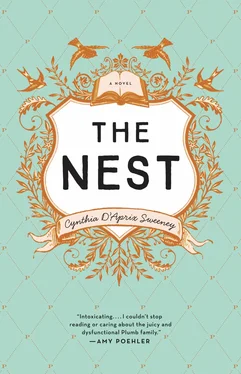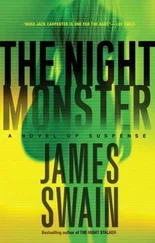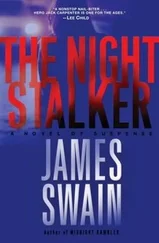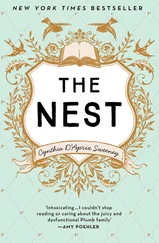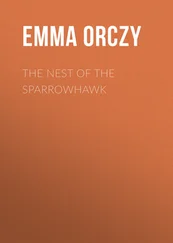It was that last sentence she would call back if she could. That was the one where she saw the shift, the slightest narrowing of his gaze, the moment when she had — inadvertently and slightly, but clearly in Leo’s eyes, concisely in his mind — positioned herself on the wrong side of a dividing line.
That was the thing she would take back.
Early morning on the Brooklyn waterfront. The sheer number of people out on a brilliantly sunny but bitingly cold February day surprised Leo. The chill of the wooden bench beneath his legs seeped through his wool trousers and heavy coat. The blue sky felt like a harbinger of spring, but the water was still a dire wintry gray. The leather satchel containing Bea’s story was on his lap. It had only been days since he read it but it felt like weeks. He closed his eyes and tried to clear his mind, suppress his rising anxiety, but instead he found himself picturing Matilda’s right foot in what would be its waning minutes. Before they got into the car and when she was slipping on her silver shoe, he’d noticed how her toenails were painted bright pink, how the pink glowed against her golden skin, how the elegant arch of her foot sat against the shoe and how, when she stood and looked at him and tugged at her shirt, she was perfectly steady on her two intact feet. Quite possibly the worst thing for him about Bea’s new story was this, how it conjured Matilda and everything about Matilda from where he’d buried her deep, deep in a tiny box in some remote corner of his brain.
He reached in his coat pocket for the pack of American Spirit cigarettes he’d bought on a whim but hadn’t opened yet, not wanting to further irritate Stephanie by smelling like tobacco. He opened the pack, withdrew a cigarette, and, leaving Bea’s leather satchel on the bench, walked over to the railing on the water. He felt sheepish about smoking, which also irritated him. And then he was irritated to feel irritation. Irritation was pretty much his primary sentiment lately, when it wasn’t anxiety.
Things were not good inside the little jewel of a brownstone that was Stephanie’s. From the street, the rooms behind the new but historically accurate windows glowed with an amber-infused warmth, inviting and cheerful. From the outside, the house looked like the perfect place to take shelter from any variety of storms, but inside? Inside, he and Stephanie were barely maintaining a civil politeness. The softness that had taken root between them since the night of the snowstorm and slowly blossomed into something expansive and occasionally exuberant had collapsed — not a slow leak either, but a sudden deflation, like a sad, sunken soufflé.
They’d fallen into their old ways, accusatory and evasive, which was reassuring in a perverted way. Leo understood the nasty pull of the regrettable familiar, how the old grooves could be so much more satisfying than the looming unknown. It’s why addicts stayed addicts. Why he’d walked away from buying cocaine before the family lunch at the Oyster Bar but now had a neat glassine envelope in his pocket. Why he was fingering an unlit cigarette in his hand and wondering what to do about Stephanie as he had countless times before.
Leo could see his future with her and he didn’t like it: He would be one of those people who started to parcel time into “years clean.” He’d build a callus of superiority around his own self-denial and would become, because of the accident and its aftermath, someone with a bifurcated past, all the accomplishments he valued would be relegated to “before,” and his narrative would build around the “after”—the accident, rehab, divorce, how he straightened up, straightened out, rebuilt from the beginning. If he stayed, he’d have to divide up his money. He’d have to get a job, like every other chump. Since his meeting with Nathan he’d e-mailed or called countless old contacts and all his inquiries added up to a big fat nothing. A few polite brush-offs at best; some never bothered to respond. He didn’t know if Nathan had been pissed enough to actually blackball him around town or if he had just gravely miscalculated his own relevance. He didn’t want to figure it out.
However he parsed it, his future in New York could only be a diluted reflection of his before, a whiter shade of pale. Evenness defined his present, the by-product, he often thought, of small minds and safe living. In his new after, there would be no ups and downs, no private jets or unexpected fucking in a tiny bathroom of a bar, or walking home from a riotous evening under a pinkening sky. It wasn’t luxury he missed, it was surprise. The things money could buy weren’t the reward; the reward was to feel lifted above everyone else, to get a look at the other side of the fence where the grass was rarely greener but always different and what he loved was the contrast — and the choice. The ability to take it in was what mattered; the ability to choose was what mattered.
He’d always leaned into the unknown. Stephanie, too. So why, he wondered, when it came to each other, did they always find themselves spinning their wheels in the same old rut, in the same exact way? He turned his broad back away from the wind coming off the water, enjoyed the familiar feeling of hunching his shoulders and cupping his hand around a lit match until the end of the cigarette glowed a steady amber. He took a deep drag and exhaled energetically. He felt better almost immediately.
Two women walking by with rolled yoga mats under their arms frowned, both furiously waving the air in front of them, as if his nearly imperceptible trickle of smoke was a swarm of stinging wasps. When had New York become so wimpy and pathetic? The city had completely lost its edge. He needed to get out, head somewhere untamed and more deserving of his talents and energy. He turned back to the water, took another satisfying drag off the cigarette, closed his eyes and thought again about his newly concocted plan, ran over the details and tested it for leaks, looked for any scraps of regret or hesitation about his decision. Nope. He felt good. He felt sad about Stephanie, that was a given, but feeling sad about Stephanie was so familiar it was becoming boring or a dangerous habit, or both. He’d casually thought about asking her to take off with him, even for a few weeks, but she never would. That kind of daring wasn’t part of her fiber.
He was still annoyed with Bea. Not as angry as he’d been the day he read the story, but still irritated. (There it was again, how had his life suddenly reduced to irritation?) And although he tried not to dwell on it, he was stung by Stephanie’s careless comment while knowing she might be right. He’d been out of the public eye so long he might not even be a story. Or he’d just be another in a long line of Internet millionaires who’d been at the right place at the right time doing the new thing and had made a ridiculous sum of money and then lost the money and done something dumb while wasted and maybe screwed the wrong person and wrecked his marriage and who, really, at this point would give a fuckity fuck. In some ways, that was almost harder for Leo to contemplate: the information about his implosion being made public and landing with an echoless whimper.
And then there was Stephanie’s inexplicable insistence that he should at least talk to Matilda Rodriguez, find out what she wanted. He knew what she wanted, and even if he did decide to distribute some of his money, it wasn’t going to be to the waitress, who’d already profited a nice tidy sum. Stephanie didn’t seem to understand that he was prohibited — legally — from talking to Matilda. (Technically, he wasn’t completely sure this was true but practically he knew it was the right thing to do. Nothing good could come of establishing contact with her.)
Читать дальше
Конец ознакомительного отрывка
Купить книгу
